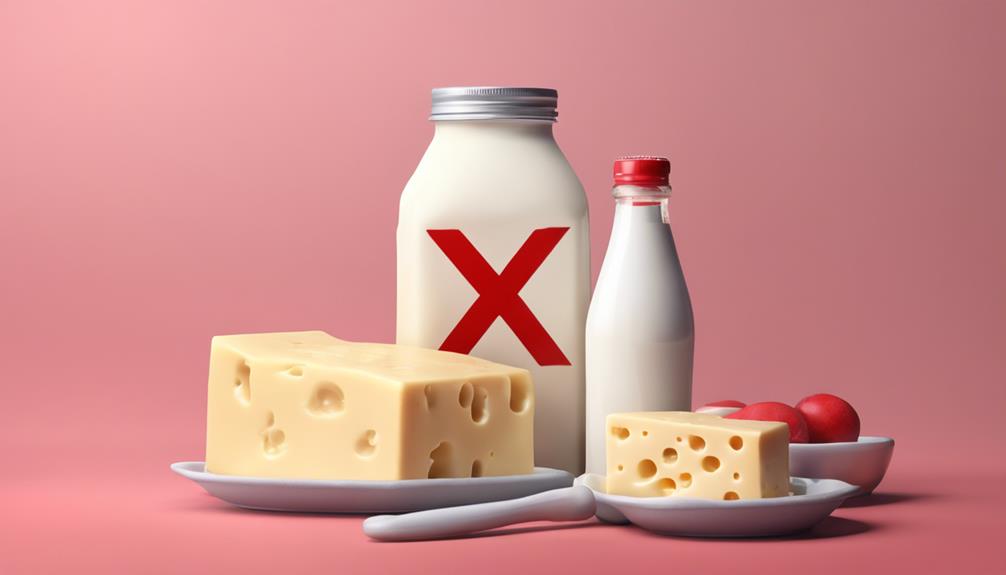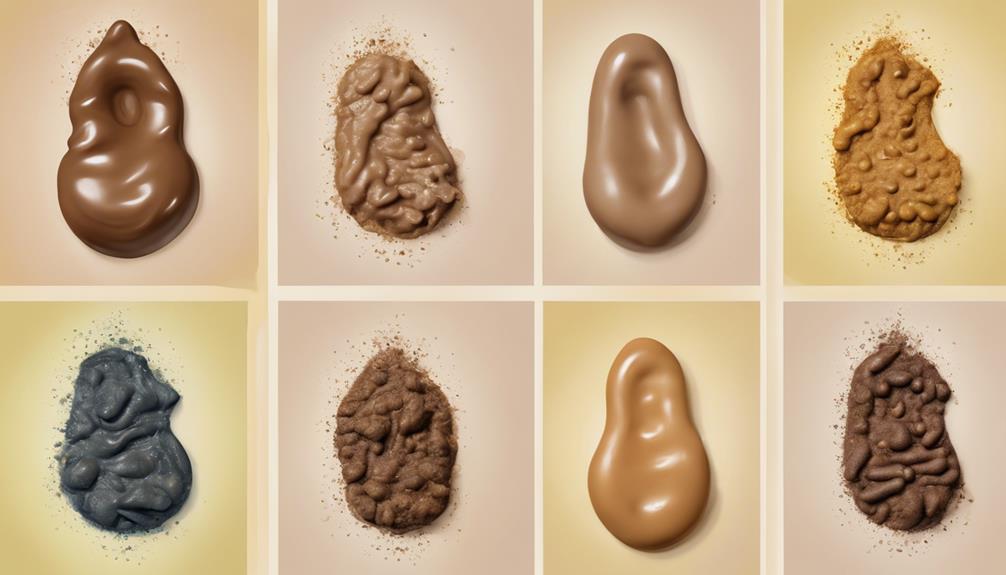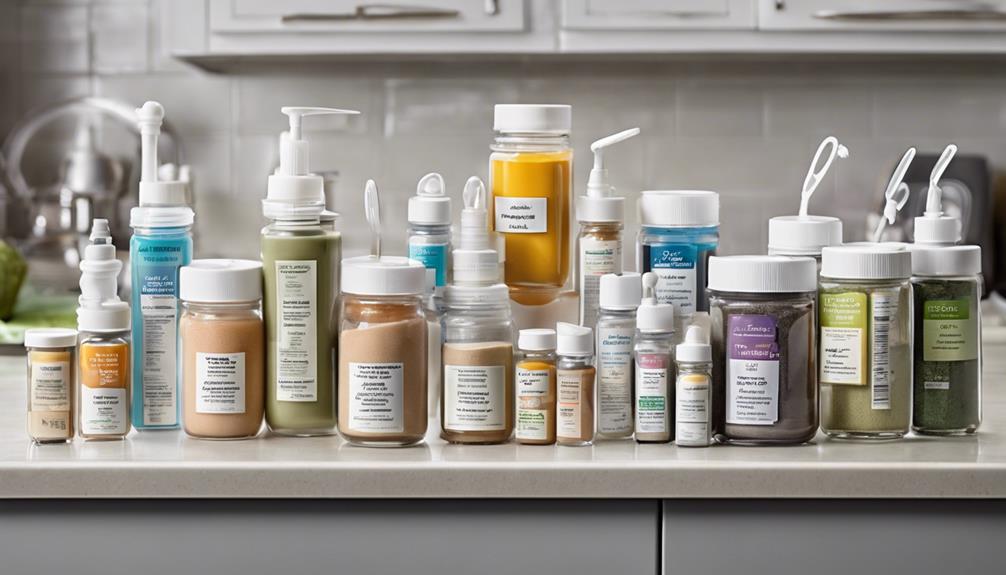As new parents, we often navigate the delicate balance of our little one's needs, like a ship sailing through choppy waters.
Imagine setting sail on a journey where avoiding certain foods can help ease your baby's gassiness.
Curious about which foods could be causing discomfort for your little bundle of joy?
Stay tuned to uncover the top three foods that might be best to steer clear of in your breastfeeding diet to help alleviate your gassy baby's discomfort.
Key Takeaways
- High-fiber foods like broccoli and cabbage can increase gas in breastfed babies.
- Dairy products may cause gas due to lactose intolerance in some infants.
- Cruciferous vegetables and citrus fruits can lead to discomfort in babies.
- Spicy foods from the mother's diet can sometimes result in gas or fussiness in breastfed babies.
High-Fiber Foods
When considering the impact of high-fiber foods on breastfeeding infants, it's essential to be mindful of potential gas production issues that may arise. Some high-fiber foods like broccoli and cabbage, while nutritious for adults, can lead to discomfort in breastfed babies due to increased gas production.
Although fiber from these foods may not directly pass into breast milk, some mothers have noticed a correlation between their consumption and their babies experiencing gas. To alleviate any potential gas-related discomfort in the baby, monitoring their reaction to high-fiber foods becomes vital.
If gas issues persist, it might be worth considering eliminating or reducing these gas-inducing vegetables from the maternal diet. By being attentive to the baby's responses to high-fiber foods like broccoli and cabbage, mothers can better identify and manage any triggers that may be causing their baby's discomfort.
Dairy Products

High-fiber foods like broccoli and cabbage can sometimes cause gas in breastfed babies. A similar effect can be observed with dairy products such as milk, cheese, yogurt, and ice cream. Dairy products contain lactose, a natural sugar found in milk, and lactose intolerance can lead to gas and discomfort in babies consuming breast milk.
It's estimated that around 2-3% of breastfed babies have sensitivities to dairy in the mother's diet, resulting in gas and fussiness. If your baby experiences gas after you consume dairy, eliminating dairy from your diet may help alleviate these issues. Monitoring your baby's reaction to dairy consumption through breast milk is important for identifying and managing gas and discomfort.
Cruciferous Vegetables
Cruciferous vegetables like broccoli and cauliflower are commonly known culprits for causing gas in breastfeeding babies due to their high fiber content. These vegetables contain raffinose, a complex sugar that's difficult to digest, leading to gas production in the baby. It's essential for breastfeeding mothers to be mindful of gas-inducing foods like broccoli, as they can contribute to discomfort in their infants.
Some mothers may observe increased gassiness in their babies after consuming cruciferous vegetables. To reduce the likelihood of gas-related issues, it's advisable to limit the intake of broccoli and other gas-inducing foods.
Frequently Asked Questions
What Foods Make Baby Gassy While Breastfeeding?
Certain foods like dairy products, cruciferous vegetables, spicy dishes, and citrus fruits can make babies gassy when breastfeeding. It's important to monitor our diet to avoid discomfort for the little one.
What Foods Cause Excessive Gas in Babies?
We've discovered that dairy products like milk and cheese, along with cruciferous vegetables such as broccoli, can lead to excess gas in breastfed babies. Eliminating these potential culprits from our diet may help alleviate our little one's discomfort.
What Foods Hurt Babies Stomach While Breastfeeding?
We avoid foods hurting babies' stomachs while breastfeeding by skipping gas-inducing cruciferous veggies, citrus fruits, and spicy dishes. Caffeine and dairy can also cause tummy troubles. Prioritizing baby's comfort guides our food choices for a happy, gassy-free breastfeeding journey.
What Are the Worst Foods to Eat While Breastfeeding?
We steer clear of certain foods while breastfeeding to keep our little one's tummy happy. Citrus fruits, spicy dishes, and caffeine are top culprits. By avoiding these, we aim to minimize gas and discomfort for our baby.
Conclusion
To summarize, making small adjustments to your diet can make a big difference in managing a gassy baby while breastfeeding.
By avoiding high-fiber foods, dairy products, and cruciferous vegetables, you can help reduce discomfort for your little one.
Remember, it's all about finding the right balance to keep both you and your baby happy and healthy.
So, keep calm and carry on with your breastfeeding journey!









